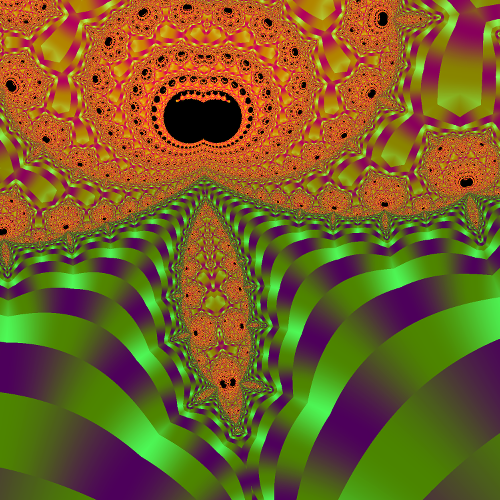結果
| 問題 | No.466 ジオラマ |
| コンテスト | |
| ユーザー |
 koyumeishi koyumeishi
|
| 提出日時 | 2016-12-16 00:52:31 |
| 言語 | C++14 (gcc 15.2.0 + boost 1.89.0) |
| 結果 |
WA
|
| 実行時間 | - |
| コード長 | 4,932 bytes |
| 記録 | |
| コンパイル時間 | 1,197 ms |
| コンパイル使用メモリ | 118,036 KB |
| 実行使用メモリ | 6,824 KB |
| 最終ジャッジ日時 | 2024-11-30 09:24:58 |
| 合計ジャッジ時間 | 11,629 ms |
|
ジャッジサーバーID (参考情報) |
judge1 / judge3 |
(要ログイン)
| ファイルパターン | 結果 |
|---|---|
| sample | AC * 1 WA * 3 |
| other | AC * 28 WA * 55 |
ソースコード
#include <iostream>
#include <vector>
#include <cstdio>
#include <sstream>
#include <map>
#include <string>
#include <algorithm>
#include <queue>
#include <cmath>
#include <functional>
#include <set>
#include <ctime>
#include <random>
#include <chrono>
#include <cassert>
#include <tuple>
#include <utility>
using namespace std;
namespace {
using Integer = long long; //__int128;
template<class T, class S> istream& operator >> (istream& is, pair<T,S>& p){return is >> p.first >> p.second;}
template<class T> istream& operator >> (istream& is, vector<T>& vec){for(T& val: vec) is >> val; return is;}
template<class T> istream& operator , (istream& is, T& val){ return is >> val;}
template<class T, class S> ostream& operator << (ostream& os, const pair<T,S>& p){return os << p.first << " " << p.second;}
template<class T> ostream& operator << (ostream& os, const vector<T>& vec){for(size_t i=0; i<vec.size(); i++) os << vec[i] << (i==vec.size()-1?"":" "); return os;}
template<class T> ostream& operator , (ostream& os, const T& val){ return os << " " << val;}
template<class H> void print(const H& head){ cout << head; }
template<class H, class ... T> void print(const H& head, const T& ... tail){ cout << head << " "; print(tail...); }
template<class ... T> void println(const T& ... values){ print(values...); cout << endl; }
template<class H> void eprint(const H& head){ cerr << head; }
template<class H, class ... T> void eprint(const H& head, const T& ... tail){ cerr << head << " "; eprint(tail...); }
template<class ... T> void eprintln(const T& ... values){ eprint(values...); cerr << endl; }
class range{ Integer start_, end_, step_; public: struct range_iterator{ Integer val, step_; range_iterator(Integer v, Integer step) : val(v), step_(step) {} Integer operator * (){return val;} void operator ++ (){val += step_;} bool operator != (range_iterator& x){return step_ > 0 ? val < x.val : val > x.val;} }; range(Integer len) : start_(0), end_(len), step_(1) {} range(Integer start, Integer end) : start_(start), end_(end), step_(1) {} range(Integer start, Integer end, Integer step) : start_(start), end_(end), step_(step) {} range_iterator begin(){ return range_iterator(start_, step_); } range_iterator end(){ return range_iterator( end_, step_); } };
inline string operator "" _s (const char* str, size_t size){ return move(string(str)); }
constexpr Integer my_pow(Integer x, Integer k, Integer z=1){return k==0 ? z : k==1 ? z*x : (k&1) ? my_pow(x*x,k>>1,z*x) : my_pow(x*x,k>>1,z);}
constexpr Integer my_pow_mod(Integer x, Integer k, Integer M, Integer z=1){return k==0 ? z%M : k==1 ? z*x%M : (k&1) ? my_pow_mod(x*x%M,k>>1,M,z*x%M) : my_pow_mod(x*x%M,k>>1,M,z);}
constexpr unsigned long long operator "" _ten (unsigned long long value){ return my_pow(10,value); }
inline int k_bit(Integer x, int k){return (x>>k)&1;} //0-indexed
mt19937 mt(chrono::duration_cast<chrono::nanoseconds>(chrono::steady_clock::now().time_since_epoch()).count());
template<class T> string join(const vector<T>& v, const string& sep){ stringstream ss; for(size_t i=0; i<v.size(); i++){ if(i>0) ss << sep; ss << v[i]; } return ss.str(); }
inline string operator * (string s, int k){ string ret; while(k){ if(k&1) ret += s; s += s; k >>= 1; } return ret; }
}
constexpr long long mod = 9_ten + 7;
int main(){
int a,b,c,d;
cin >> a,b,c,d;
int n = a+b-c;
if(n < 2){
println(-1);
return 0;
}
vector<int> x,y,z;
int e = 0;
if(a==c){
e++;
z.push_back(0);
}else{
x.push_back(0);
a--;
}
if(b==c){
e++;
z.push_back(1);
}else{
y.push_back(1);
b--;
}
c -= e;
int i = 2;
while(c--){
z.push_back(i++);
}
a -= z.size();
b -= z.size();
while(a-- > 0){
x.push_back(i++);
}
while(b-- > 0){
y.push_back(i++);
}
vector<vector<int>> G(n);
if(z.size() == n){
G[0].push_back(1);
G[1].push_back(0);
for(int v : z){
if(v>1) G[0].push_back( v );
}
}else if(z.size()){
if(x.size()){
G[0].push_back( z.front() );
}
if(y.size()){
G[1].push_back( z.front() );
}
for(int i=1; i<z.size(); i++){
G[ z.front() ].push_back( z[i] );
}
}
for(int i=1; i<x.size(); i++){
G[0].push_back( x[i] );
}
for(int i=1; i<y.size(); i++){
G[1].push_back( y[i] );
}
int cnt = 0;
for(int i=0; i<n; i++){
cnt += G[i].size();
}
if(cnt > d){
println(-1);
return 0;
}
const long long sz = 20000;//1145148931919ll;
set<long long> unko;
while(unko.size() < n-2){
unko.insert( uniform_int_distribution<long long>(2, sz-1)(mt) );
}
vector<long long> mura(n);
mura[0] = 0;
mura[1] = 1;
for(int i=2; i<n; i++){
mura[i] = *unko.begin();
unko.erase( unko.begin() );
}
println(sz, cnt);
for(int i=0; i<n; i++){
for(auto j : G[i]){
println(mura[i], mura[j]);
}
}
return 0;
}
